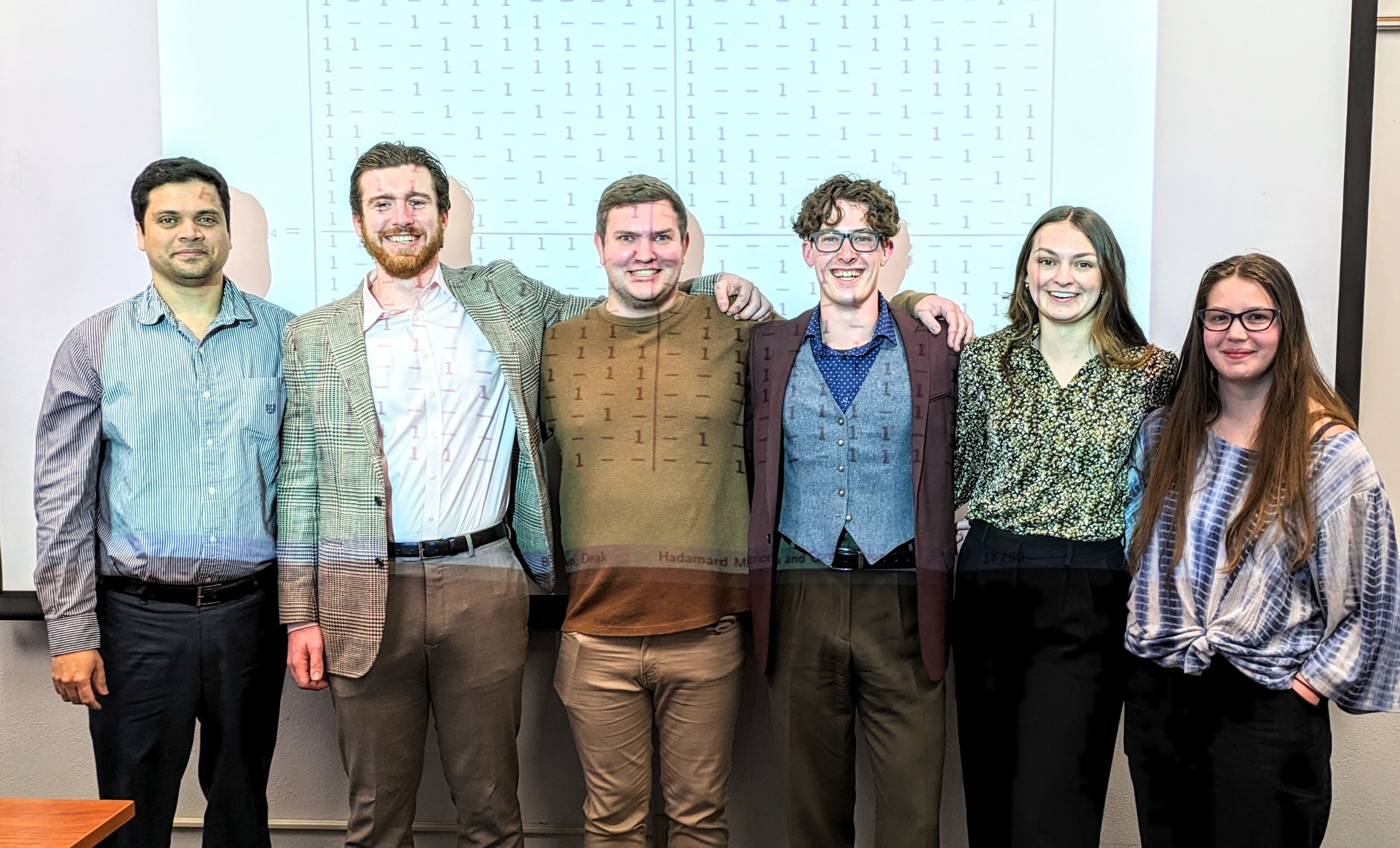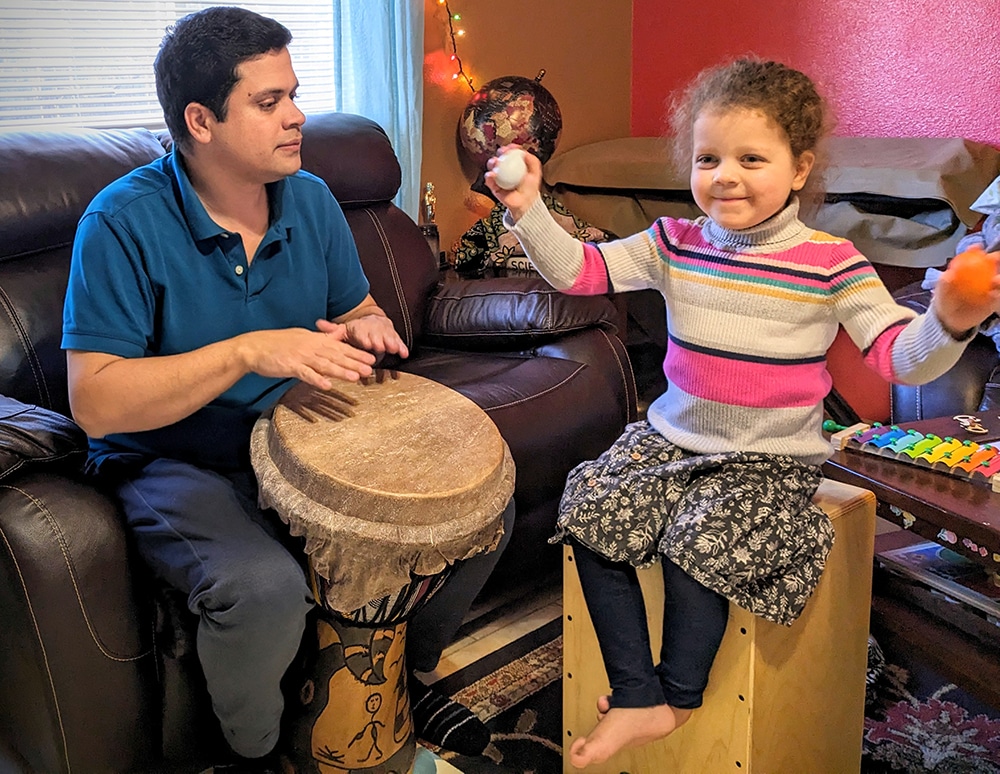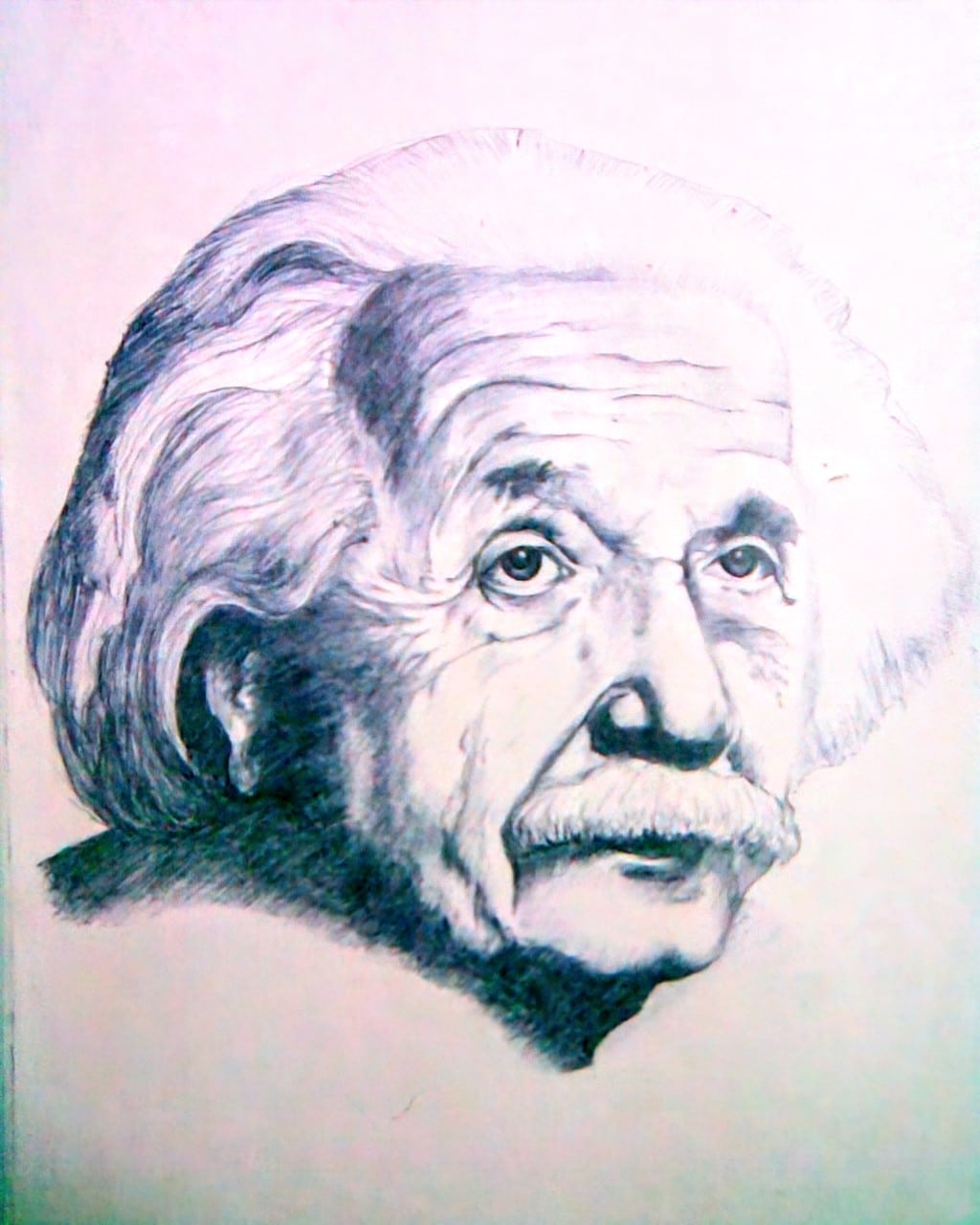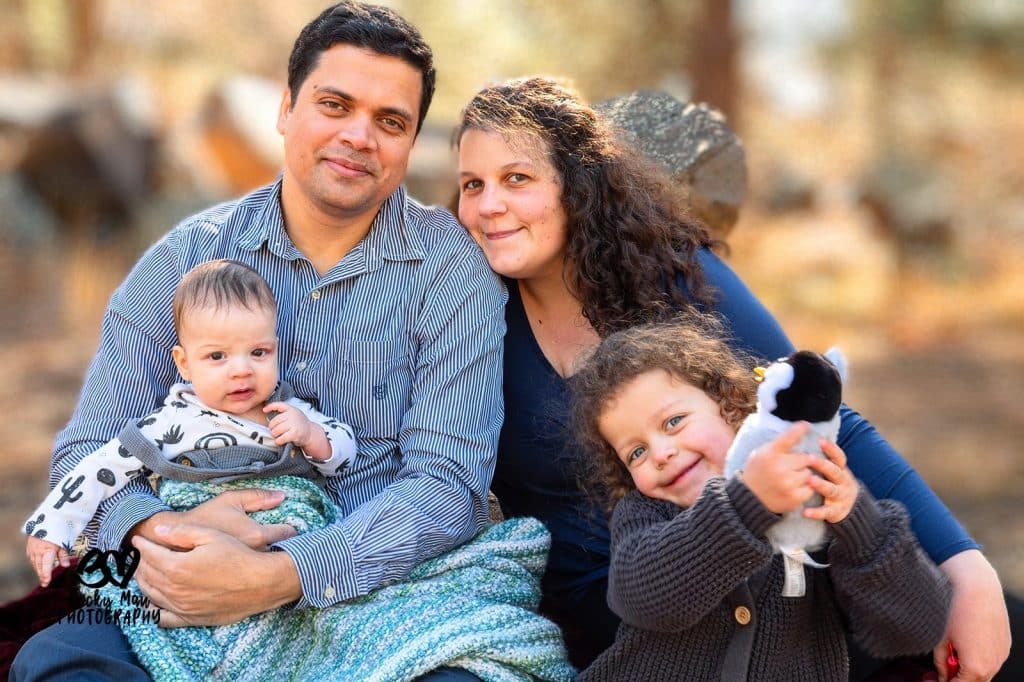Sudipta Mallik, associate teaching professor of mathematics and statistics, has been teaching at NAU since 2014. Originally from India, he speaks to his love of math (and poetry), the recent addition to his family and his latest success: publishing and indexing an open access mathematics journal. (Read to the end if you want a good laugh.)
What brought you to NAU?
During the final year of my Ph.D., I applied for some academic jobs. I received a tenure-track assistant professor job offer from a small university in Louisiana, and the same week NAU offered me a non-tenure-track position. I visited NAU for the interview in late May and loved NAU and Flagstaff. So, I decided to come here. I thought my snowy Wyoming days were over by coming to Arizona. In a few months, I realized I was kidding myself!
I have taught a wide range of classes, from Algebra for Precalculus to Graduate Linear Algebra. I am currently teaching the undergraduate mathematics capstone class which is a brand-new class, and I helped design it.

Why math?
In my high school in India, I was a science student with physics, chemistry, mathematics and biology. I liked physics and mathematics where the concepts seemed very logical. Ultimately, in college, I chose a mathematics major over physics because I did not like the approximations in physics. Ironically, I have taught numerical analysis many times at NAU , which is all about approximations in mathematics. I truly fell in love with math when I did my master’s in pure mathematics in India, then after doing some higher mathematics at 7,200 feet at the University of Wyoming. I cannot think of any other subject that could bring me more joy. According to Gauss, mathematics is the “queen of sciences.”
What led you to start an open access mathematics research journal?
I have seen some mathematicians struggling to find a suitable journal to publish their research work. Some well-known journals focus on achieving a high rejection rate. As a result, they frequently reject manuscripts even before a formal review process. I believe the quality of an article depends on how it influences other researchers, which may be somewhat measured by the number of citations, not where it was published. Also, there are not many open access journals in my subfield of mathematics. In 2021, I started the American Journal of Combinatorics (AJC). AJC has published two volumes in two years. On Dec. 5, AJC was indexed in the Directory of Open Access Journals (DOAJ).
Why are open access research journals important?
I believe collective human knowledge should be freely accessible. But if you want to make your article freely accessible to the public, then you need to pay thousands of dollars for some journals. For example, my wife had to pay $4,000 from a grant to publish in a well-known journal of her field, microbial ecology. Most mathematicians do not have any grant money. Even some open access journals have article processing charges. This is not fair because most of the work is done by reviewers/referees and editors without getting paid. Some journals could and should work like a nonprofit organization. AJC is a diamond open access journal, which is the highest level of open access meaning journal articles are freely accessible to all without any charges and authors retain the copyright of their work.

We usually ask what are you most proud of, but I have a feeling it’s getting this journal indexed. 😊
I am really proud that AJC is indexed in DOAJ. But there is more work to do. When I started AJC, some people were skeptical, and many people ignored or rejected my requests regarding the journal. But I kept going. I was never an editor of any journal before AJC. I had to learn a lot of things, including html to make the journal website. It is unusual for a non-tenure-track math faculty member to start a math research journal, but I felt this challenge was worth pursuing. I am grateful to the editors, reviewers and authors of AJC. I also started a website (learnmathonline.org) for mathematics students, which has my lecture notes of many classes. A lot of NAU students and some faculty use this website. Google Analytics shows visitors from all over the world. I feel happy when someone mentions that the website was helpful to them. But really, I am most proud of the recent addition to my family, my son.
Tell me about a significant childhood memory and how it has impacted your life today.
In the midterm exam of sixth grade, I got 100 out of 100 in the math exam. It was unusual and unacceptable for the administration of that rural school in India. The headmaster initiated a review of my paper and deducted three points for not simplifying a fraction as a final answer. The math teacher felt humiliated and had a chat with my brother, who is 12 years older than me. To protest this “injustice,” my brother went to the school. The headmaster told him to take me to another school if we did not like it there. Months after this bizarre incident, I was selected to attend a good school of Ramakrishna Mission which was one of the best moves in my academic journey besides coming to the U.S. for a Ph.D.

What did you want to be when you grew up?
One of my seventh-grade teachers asked the whole class what we wanted to be when we grew up. I still remember I said I wanted to be a poet. My great poetry writing career ended around the time I graduated high school. Einstein said that pure mathematics is, in its way, the poetry of logical ideas. So as a pure mathematician I am kind of doing poetry every day! Also, we have a poet at home, my son Koby. (Koby means poet in Bengali.)
What are three things on your bucket list?
- Make a film or a series.
- Write a fiction and some textbooks.
- Start a business and a nonprofit organization to help others.
(English is my second language. My wife was laughing while explaining to me the meaning of “kicking the bucket,” which I did not know!)



